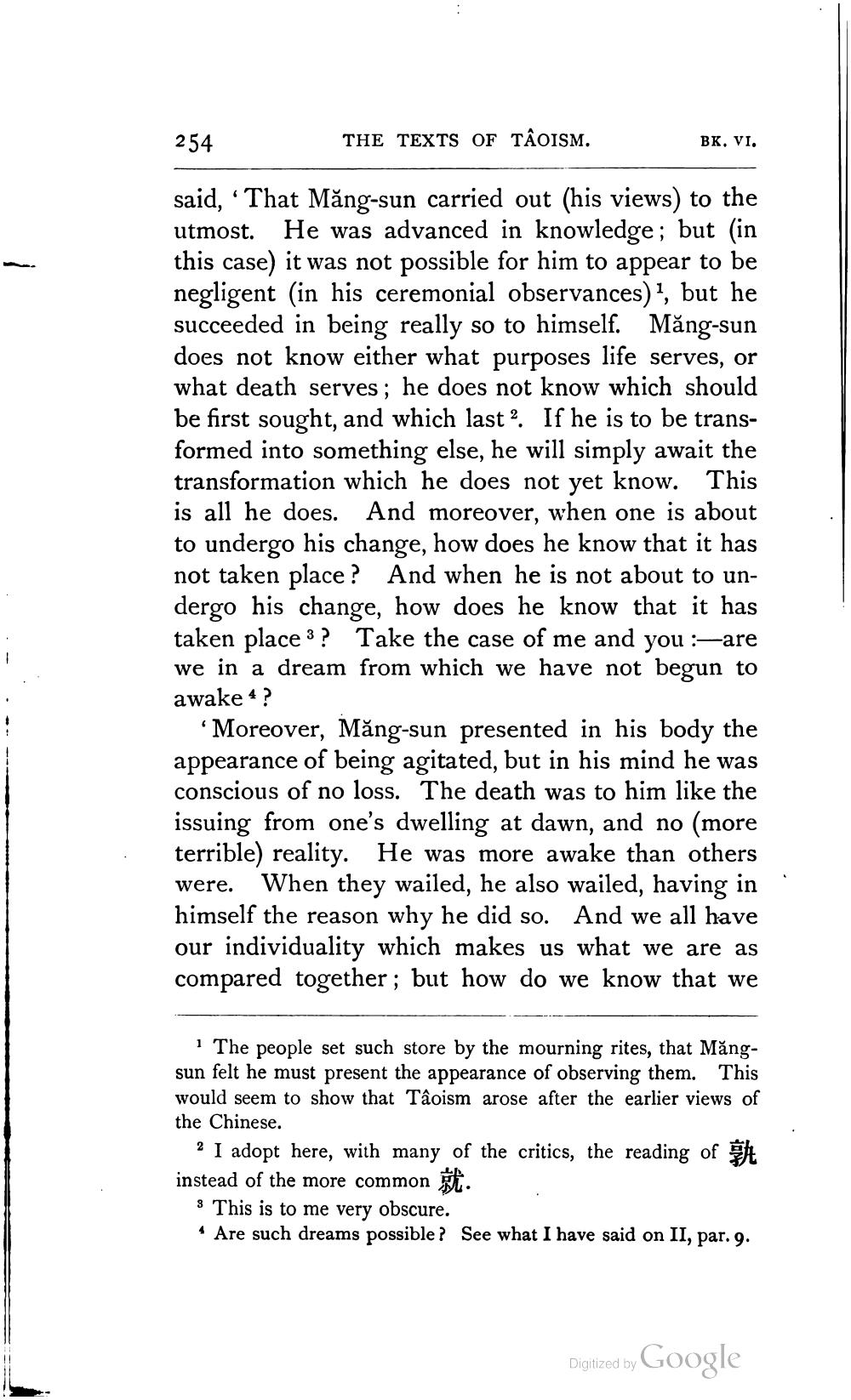________________
254
THE TEXTS OF TÂOISM.
BK, VI.
said, “That Măng-sun carried out (his views) to the utmost. He was advanced in knowledge; but (in this case) it was not possible for him to appear to be negligent (in his ceremonial observances), but he succeeded in being really so to himself. Măng-sun does not know either what purposes life serves, or what death serves; he does not know which should be first sought, and which last 2. If he is to be transformed into something else, he will simply await the transformation which he does not yet know. This is all he does. And moreover, when one is about to undergo his change, how does he know that it has not taken place? And when he is not about to undergo his change, how does he know that it has taken place 3 ? Take the case of me and you :-are we in a dream from which we have not begun to awake 4 ?
'Moreover, Măng-sun presented in his body the appearance of being agitated, but in his mind he was conscious of no loss. The death was to him like the issuing from one's dwelling at dawn, and no more terrible) reality. He was more awake than others were. When they wailed, he also wailed, having in himself the reason why he did so. And we all have our individuality which makes us what we are as compared together ; but how do we know that we
1 The people set such store by the mourning rites, that Măngsun felt he must present the appearance of observing them. This would seem to show that Taoism arose after the earlier views of the Chinese.
2 I adopt here, with many of the critics, the reading of instead of the more com
3 This is to me very obscure. - Are such dreams possible? See what I have said on II, par. 9.
a
Digitized by Google




